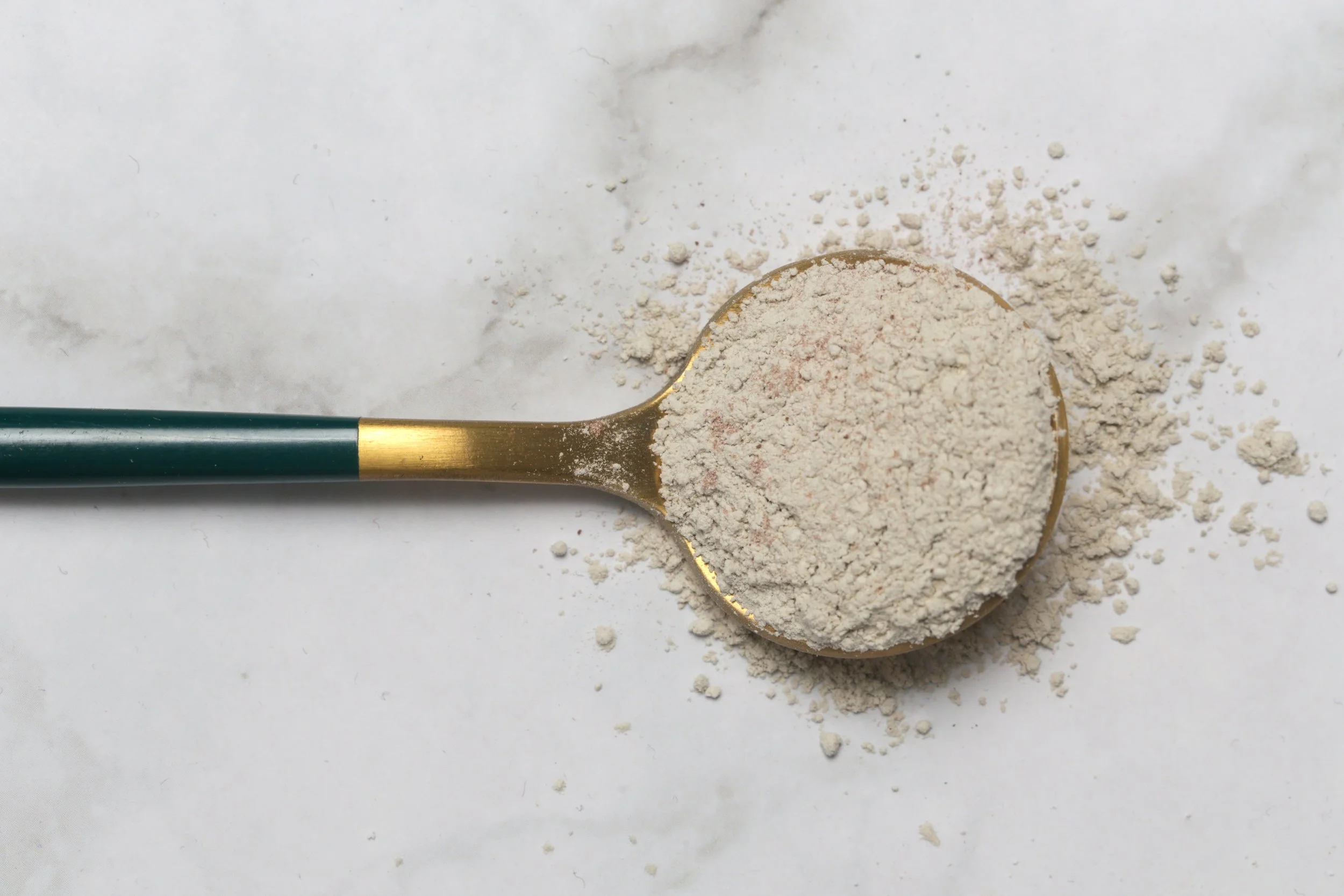7 Signs You Might Be Nutrient Deficient
With today's diet of processed foods and well-travelled produce, it's easy to become vitamin-deficient, either by not eating enough fresh locally-grown plants, or not absorbing them properly due to digestive issues. In fact, a recent study determined that 9 out of 10 Americans are lacking key nutrients in their diets.
The problem? Without adequate intake of essential nutrients, you can end up with impaired bodily functioning because vitamins are cofactors for all the biochemical reactions in the body. We need them in order to feel our best.
When your body is trying to tell you something—for example, that you're missing out on critical vitamins—it may go to some strange lengths to get your attention, like muscle cramps, tingling in the limbs, rash or bumps on the skin, brittle nails, hair loss, or even cracks in the corners of your mouth.
The good news: Most are fixable with dietary tweaks—all the more reason to make nutrition a top priority. (But if nutritional tweaks don't work, be sure to check in with your health care practitioner.)
Cracks at the corners of your mouth.
The Deficiency: Iron, zinc, and B vitamins like niacin (B3), riboflavin (B2), and B12. If you're vegetarian, it's common to not get enough iron, zinc, and B12.
The Fix: Eat more poultry, salmon, tuna, eggs, oysters, clams, sun-dried tomatoes, Swiss chard, tahini, peanuts, and legumes like lentils. Iron absorption is enhanced by vitamin C, which also helps fight infection, so combine these foods with veggies like broccoli, red bell peppers, kale, and cauliflower. Reach for a quality multi-vitamin for extra daily assurance.
A red, scaly rash on your face (and sometimes elsewhere) and hair loss.
The Deficiency: Biotin (B7), known as the hair vitamin. While your body stores fat-soluble vitamins (A, D, E, K), it doesn't store most B vitamins, which are water-soluble.
The Fix: Reach for more cooked eggs, salmon, avocados, mushrooms, cauliflower, soybeans, nuts, raspberries, and bananas, or take a B-Complex to meet your daily needs.
Red or white acne-like bumps, typically on the cheeks, arms, thighs, and butt.
The Deficiency: Essential fatty acids and vitamins A and D.
The Fix: Focus on adding more salmon and sardines, nuts like walnuts and almonds, and seeds like ground flax, hemp, and chia. For vitamin A, pile on leafy greens and colorful veggies like carrots, sweet potatoes, and red bell peppers. For vitamin D, I recommend a Vitamin D supplement to get sufficient intake — often 2,000 IU a day for most.
Tingling, prickling, and numbness in hands, feet, or elsewhere.
The Deficiency: B vitamins like folate (B9), B6, and B12. It's a problem directly related to the peripheral nerves and where they end in the skin. These symptoms can be combined with anxiety, depression, anemia, fatigue, and hormone imbalances.
The Fix: Seek out spinach, asparagus, beets, beans (pinto, black, kidney, lima), eggs, octopus, mussels, clams, oysters, and poultry, and a quality multi-vitamin for extra daily assurance.
Muscle cramps in the form of stabbing pains in toes, calves, arches of feet, and backs of legs.
The Deficiency: Magnesium, calcium, and potassium. If it's happening frequently, it's a tip-off that you're lacking in these. And if you're working out or in hot temperatures, you can lose more minerals (and water-soluble B vitamins) through heavy sweating.
The Fix: Eat more bananas, almonds, hazelnuts, squash, cherries, apples, grapefruit, broccoli, bok choy, and dark leafy greens like kale, spinach, and dandelion, drink fresh coconut water, or add a balanced mix of electrolytes to your water.
White spots on nail beds.
The Deficiency: Zinc.
The Fix: When you eat more zinc rich foods such as oysters, seafood, seeds, meat, or take a zinc supplement, the spots should disappear.
White coating on your tongue.
The Deficiency: Beneficial microflora (good bacteria). A creamy coating towards the back of the tongue may indicate dysbiosis – where the intestinal microflora are out of balance. A thick white coating on the tongue, and sometimes on the inside of the mouth may indicate thrush or candida.
The Fix: For starters, reducing processed foods, sugar, wine and beer will help. Aim for a daily helping of fermented foods like kefir, sauerkraut, tempeh, kimchi, miso, kombucha combined with a course of probiotics to rebalance microflora.
Remember, symptoms are our body’s way of communicating with us. Only you know your body best, so you’ll be the first to pinpoint if something feels “off”. Your feelings, your symptoms, and your intuition play an important guiding role in uncovering common nutrient deficiencies.
The bottom line: By focusing your diet on abundance and plenty of fresh plant foods (locally and organically grown when possible), you’re going a long way to ensure sufficient nutrient levels. But nutrition is personal and your body requires specific nourishment to meet your unique needs. Mindfully supporting your diet with a personalized micronutrient plan can help make up the balance.











